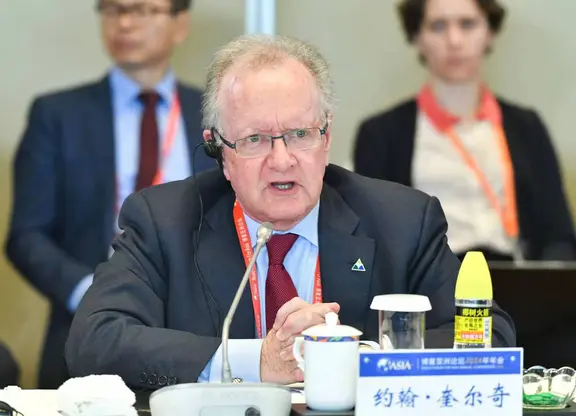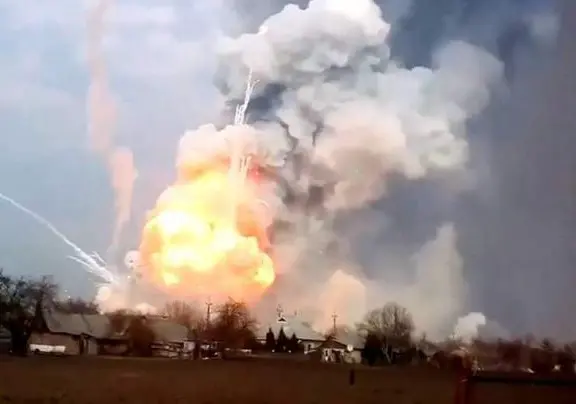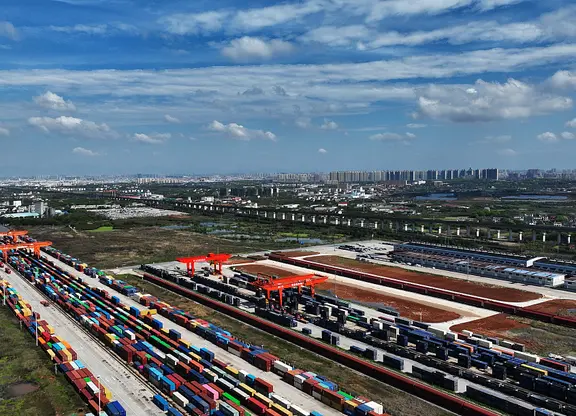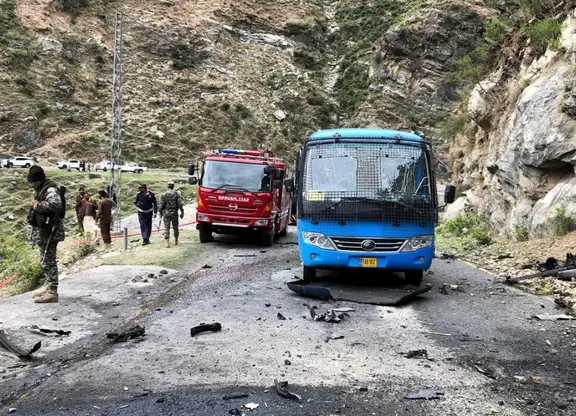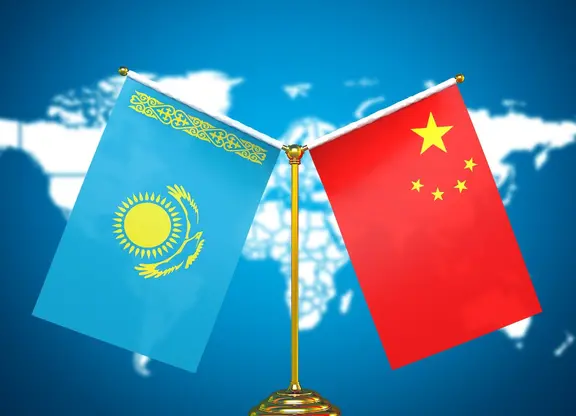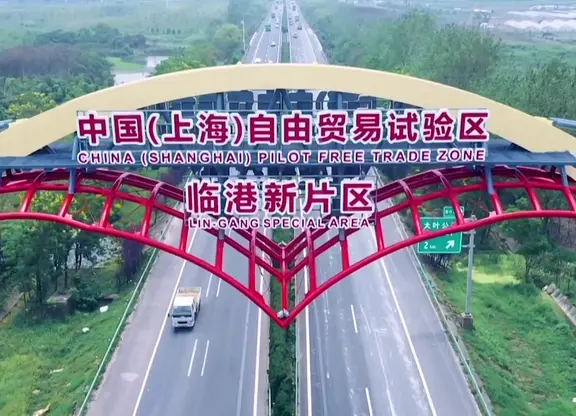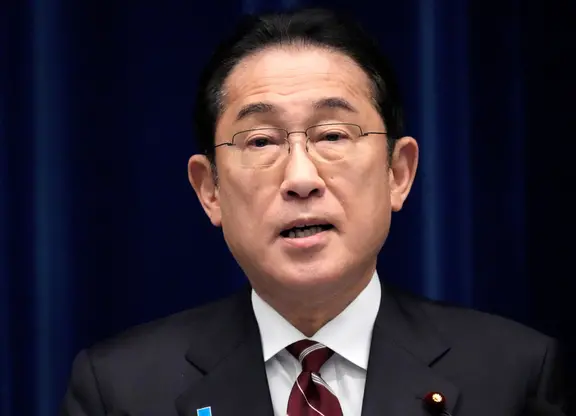Mr. Chhabindra Parajuli
Minister Economic Embassy of Nepal, Beijing
Background
Nepal and the people’s Republic of China are close neighbors and reliable friends connected by the Himalayas, mountains, rivers and ancient civilizations. Time tested and good political relations are enabling factors for enhancing the investment and trade between Nepal and China. China has remained a long-standing trusted and reliable neighbor and development partner for Nepal. This article covers the Nepal- China trade and investment opportunities and prospects.
Nepal’s Trade opportunities
The volume of Nepal-China trade is increasing year on year. China is the Nepal’s second largest trade partner. Nepal’s exports to China include leather, metal ware, traditional thangkas, woolen products, Nepali hand knitted carpets, Chyangra pashmina, wheat flour, noodles, tea etc. Nepal’s imports from China include medical equipment’s, machinery and parts, communication technology related machinery products and parts, computer and computer parts, textiles and readymade garments, shoes, electrical goods and instruments, industrial raw materials and construction equipment’s related to hydropower and other infrastructure related constructions equipment’s among others.
Until the establishment of formal diplomatic relations between Nepal and PR China, in 1955 and the establishment of the Consulate General in 1956, there used to be a barter system of trade between Nepal and PR China. Currently, there are several trades and investment-related agreements between Nepal and PR China to facilitate and promote trade and investment between the two countries. Major agreements, Memorandum of Understanding, and existing Mechanisms related to trade, transit, and investment are - Agreement between People’s Republic of China and Nepal on Economic Aid 1956; Agreement on Road Transportation, 1974; Trade and Payments Agreement, 1981; Nepal China Agreement on Road and Other Related Matters, 2002; Agreement of Cooperation for Industrial Product Inspection,2005; MoU on the establishment of Nepal China, Tibet Trade Facilitation Committee, 2009; Agreement on Management of Ports, 2012; Letter of Exchange on Special Preferential Tariff Treatment to Certain Goods, 2014; Transit Transport Agreement 2016, and Protocol,2019; MoU on Co-operation under the Belt and Road Initiative (BRI), 2017; Commerce Secretary/Joint Secretary and Vice Minister /DG) level mechanism in trade, 2019; and Agreements related to trade, transit, and other economic activities.
Agreement on Management of Ports, 2012 has identified six land routes between Nepal and China. Three of six land routes are designated for international trade, and the other three are for bilateral trade. There are trade six routes between Nepal and China. They are- Kerung, Rasuwagadhi, Zhamu- Tatopani, Puran- Yari, Nechung- Lichi, Riyu/ Chentang- Kinmathanka, and Riyu- Olangchungola.
The first three are the international trade routes, and the others are recognized as the bilateral trade routes. In addition to these six formal routes, there are some other passes between the two countries such as Larke Pass, Limi Pass, Lamabagar Pass, and Ru Pass, among others, through which local peoples from both counties could use these passes for the local trade, and for the other social and cultural exchanges events and programs. The following measures could help to minimize the increasing trade deficit:
· Establishment of additional logistics channels and warehouses in the both sides of the borders. This will help to accommodate the increasing volume of the trade goods and facilitate the smooth bilateral trade transactions. This will also facilitate to easy access for the bilateral trade between us.
· Establishment and operationalization of the additional Industrial Districts/ Export Processing Zones in the Nepal side close to Chinese border in order to produce more exportable goods which are more demands here in China.
· Proving a simplified and a fast-track products registration services at the General Administration of customs for the Nepali products to enter into the China markets.
Nepal’s Investment opportunities
A sound macroeconomic strategy in combination with prudent fiscal policies and major structural reforms has integrated the Nepali economy into the globalized world, while transforming the country into one of the major recipients of foreign direct investment in the region.
Nepal’s young, high skilled, dynamic capable human capital, rising income standards of the people are some of the enablers for the Chinese investors in Nepal. Additionally, macroeconomic stability, dynamic free and open market economic policy, investors friendly legal, institutional and procedural arrangements, and as well as strong and stable economic growth potential, Nepal offers abundant business and investment opportunities for the Chinese investors in many diverse sectors. Energy, Tourism, Urban Infrastructures development, Mechanization of the Agriculture, Information and Communication Technology, Health and Education, Financial Sector, Mines and Minerals are some of the National prioritized sectors for the foreign direct investment. In Nepal, foreign investors are allowed 100% ownership of a company in a majority of sectors, and repatriation of earnings, company’s profits and bonus are easily allowed. Mega-projects, especially in Construction Industries, Solar Energy generation/Hydropower construction and operation, Urban Infrastructures construction and operation under the public private partnership models- BOOT, BOT, Information and Communication Technology, Tourism hotels and hospitality sectors are the major sectors waiting to welcome the Chinese investors.
Nepal is endowed with abundant natural resources but it is still in the primary stage of development. So, Nepal needs huge investment for the infrastructure’s development such as the construction of the provincial capitals, High-tech zones, Industrial parks, new international airports, national roads, railways, urban infrastructures and many more. It is relatively a virgin land for investment destination. Nepal offers multiple opportunities for investment to foreign investors and foreign enterprises from China.
The Government of Nepal is committed to facilitate and cooperate with interested investors from China to channelized more investment in priority areas such as trade, hydropower/energy, key infrastructures development, connectivity encompassing vital components such as railways, roads, airports, mining and minerals, agriculture and medicinal herbal processing industries, and tourism and hospitality industry, service sectors industries including tourism and information and communication technology, among others.
Nepal’s drive for socio-economic transformation will require huge amount of investment in almost all the sectors. Nepal and China have signed a Memorandum of Understanding on Belt and Road Initiatives for fostering cooperation in priorities areas. BRI will help to promote connectivity and business cooperation opportunities between the two countries and create new avenues of opportunities. The collective efforts of Nepal and China could open a new era for the enhancement of investment and trade between both the nations. China is the largest source of FDI in Nepal. Chinese investment in Nepal has been diversified and increasing year on year. On the one hand, Nepal Government is offering an attractive incentives package for the foreign investors and on the other hand, Chinese enterprises have implemented the going global strategy; in this scenario, I strongly believe that Chinese investors will make more investment in Nepal in this new normal and favorable investment conducive environment and will explore the opportunities what Nepal offers to the investors.
Investment incentives, facilities and support measures
· Nepal is strategically located between two large and rapidly growing economies and to the market in the whole south Asian region.
· Nepal has large pool of high skilled human capital (out of total population, about 57% are of working age 15-59 years). Nepal has relatively low cost of labor compared to other countries.
· Nepal is ranked 94th in the World and 3rd in South Asia in “Ease of Doing Business Report 2019” by the World Bank Group.
· Foreign investors are allowed 100% ownership of a company in a majority of sectors. Repatriation of capital, bonus and other profits are easily allowed by law.
· Land ownership is allowed in company’s name.
· On arrival tourist visa allowed for visitors. Business visa for investors, simplified visa process.
· Various bilateral investment protection and double tax avoidance arrangements are in place.
· Nepal has signed Bilateral Investment Promotion and Protection Agreement (BIPPA) with India, Finland, Germany, Mauritius, UK, and France.
· Double Taxation Avoidance Agreement signed with Austria, Bangladesh, China, India, Korea, Mauritius, Norway, Pakistan, Qatar, Sri Lanka and Thailand.
· Compared to other countries in South Asia, Nepal offers the lowest tax burden in the region. Some of the reasons for comparatively high Rate of Investment in Nepal include:
· Huge investment potential in tourism, hydro-power, agriculture, and mine and mineral sectors;
· Abundance of natural resources;
· General income tax rate of 25% (20% in priority sector like Energy, Transport Infrastructure and Manufacturing), Value Added Tax (VAT) of 13%;
· Tax Holiday for specific sectors; → Income tax concession on profits from exports and interest income on foreign loans;
· Withholding tax rate of 15% on royalties and technical & management fees;
· Customs, excise duties, and VAT levied on raw materials and auxiliary raw materials of export-oriented industries is reimbursed to the exporter on the basis of the export amount within 60 days of application.
· Cash incentives scheme on the basis for the export amount for the priorities of exportable products.
· 20 million Nepali rupees is fixed for the minimum threshold Capital for the foreign Direct Investment.
· Special Economic Zones, Hi-tech Industrial parks and Industrial Districts are also offering many facilities and incentives for the foreign investors in Nepal.
Conclusions
Nepal is now ready to welcome the Chinese investors in this new normal COVID situation. Nepal would be one of the most attractive destinations for the Chinese investors because of its strategic location and the investment friendly policies and incentives. Nepal now became the excellent investment destination country for the foreign investors. The priorities sectors are tourism industries like hotels and adventures activities, hydro/energy, manufacturing industries, urban infrastructures construction industries, mining/ mineral industries and agriculture mechanization and agro-processing industries as well as service sectors industries.
China’s achievements and success for attracting the inward FDI and enhancing the production capability of the existing manufacturing entities and state own enterprises as well as enhancing the service sector’s business platform facilities especially the transport network and transportation facilities and available options, comprehensive e-commerce service platform, High-tech service zones, Banking and Insurance services network and wider coverage are the best examples for us. Chinese investors could explore the benefits of the Nepal’s investment policies and could enjoy the benefits of the incentives offer for the investment in the priorities sectors of Nepal. The regular investment interaction programs and dialogue forums will help for the Chinese enterprises and investors to know more about the Nepal’s investment opportunities and prospects. These types of forums could certainly serve as a platform to receive the policy feedbacks to further improving and refining our investment related policies and priorities as well as refocusing and reorienting the investment incentives schemes. This type of activities would support to accelerate the Chinese investment in the Nepal’s priority projects and sectors. We hope this is the right time to explore the Nepal’s investment and trade opportunities by the Chinese investors. Nepal is willing to welcome the Chinese investors in their areas of interest and field of their expertise. Hence, I would like to request all the Chinese investors to earn more by making their investment in Nepal and to explore the full potentials of Nepal’s investment opportunities.
(ASIA PACIFIC DAILY)
 简体中文
简体中文


